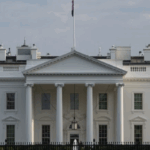Global stock markets plunged today as investors rushed to safe-haven assets like bonds, gold, and the yen amid growing concerns that new US tariffs could exacerbate the trade war and push the world into recession.
In the US, major stock indexes took a sharp dive at the opening bell. The Dow Jones dropped by 2.6%, while the S&P 500 fell 3.3%, and the Nasdaq Composite tumbled 4.5%. The sell-off extended beyond US borders, with European shares sinking to a two-month low. The Frankfurt DAX index plummeted 2.4%, Paris’ CAC 40 lost 3.2%, and London’s FTSE 100 fell 2.4%, after President Donald Trump imposed tariffs that impacted Britain less severely than the European Union.
In Dublin, the ISEQ index was down 2%, with banking stocks bearing the brunt of the losses. Meanwhile, the US dollar fell to a six-month low as Trump’s tariffs, which raise effective import taxes to the highest levels in a century, rattled global markets.
“This is a game-changer, not only for the US economy but for the global economy,” said Olu Sonola, head of US economic research at Fitch Ratings. “Many countries will likely end up in a recession. You can throw most forecasts out the door if this tariff rate stays on for an extended period of time.”
The Asian markets followed suit, with Tokyo’s Nikkei index plunging nearly 3%, hitting eight-month lows. In after-hours trading, Apple’s market value shrank by more than $240 billion, as its shares slid by 7%. Nvidia also saw a sharp decline, with its market cap dropping by 5.6%, or $153 billion.
On the heels of the tariff announcement, President Trump imposed a 10% baseline tariff on imports, with far higher levies on some trading partners, particularly in Asia. China faced a 34% tariff, Japan a 24% tariff, Vietnam 46%, and South Korea 25%, while the European Union was hit with a 20% levy.
According to Fitch Ratings, the effective US import tax rate has skyrocketed to 22% under Trump, up from just 2.5% in 2024, marking the highest levels since 1910. As investors brace for retaliatory measures from China and Europe, global growth stocks were sold off, and investors flocked to safer assets.
World oil prices, seen as a barometer of economic activity, dropped more than 5%, further reflecting the market’s pessimism about the global economy. Australian shares and the Australian dollar also experienced losses.
Gold prices hit a record high, surging above $3,160 per ounce, and Japan’s yen rose more than 1% to 147.29 per dollar as foreign exchange traders sought refuge outside the US dollar. The euro also strengthened against the dollar.
In response, China has kept its currency relatively stable, with the yuan’s drop limited to 0.4%, despite facing tariffs of over 50% on its exports. The country’s large domestic economy and expectations of government support helped limit losses in Hong Kong stocks to around 1.5% and Shanghai to approximately 0.5%.
As the global trade war escalates, market volatility is expected to continue, with investors and businesses preparing for further uncertainty in the coming mont
















